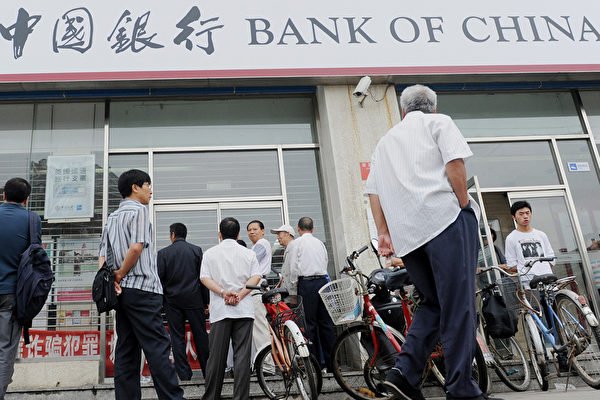Last month, hundreds of medical staff in Shanwei, Guangdong, held slogans such as “We want to eat,” “Director come out, give back our bonuses,” and “I want a life,” as they gathered in the hospital lobby to demand unpaid wages.
According to the Wall Street Journal, despite labor disputes being common in China and the strict control of speech by the Chinese Communist Party, these kinds of protests are becoming more frequent amidst local governments being heavily indebted and unable to meet their expenses.
Just a few weeks ago, retired workers in Yichun, Heilongjiang, protested collectively after going months without receiving their pensions. Last summer, a white banner was hung on the gate of a local government office in Datong, Shanxi, demanding the payment of wages owed to rural migrant workers.
Based on videos and posts on social media tracked by Hong Kong non-profit organization “China Labour Bulletin,” there have been around 1,200 labor protests across China due to wage arrears and other related reasons so far this year, surpassing last year’s count of over 1,600, which is more than the approximately 700 in 2022 and 900 in 2021.
For years, local Chinese governments have been borrowing heavily to boost their achievements, even for projects with limited economic benefits, and they could generate revenue by selling land. However, as the economy continues to falter and the real estate sector collapses, local governments burdened with staggering debts are experiencing a significant drop in revenue, leading to an increasingly uncontrollable crisis.
Previously, Beijing stated that by the end of last year, the “implicit (off-balance sheet) debt that local governments need to digest” was equivalent to $2 trillion, but economists believe the total amount of implicit debt ranges from $7 trillion to $11 trillion. Economists estimate that up to $800 billion in debt is at high risk of default, leading to financial insolvency.
Victor Shih, a professor at the University of California, San Diego, who researches China’s political and financial systems, analyzed that at some point last year, monthly debt repayment in some provinces reached 125% of monthly revenue.
To raise funds, some localities have been forced to cut expenses, leading to disruptions in public services. Last year, a bus company in Shangqiu was on the verge of halting operations due to financial shortages; in cities like Wuhan, Dalian, and Guangzhou, the public healthcare system reduced medical benefits; law enforcement agencies increased fines, charges, and asset seizures. A government department in Chongqing established a special team for a “sell the pot, sell the iron” campaign, drawing attention. Some places reportedly conducted large-scale tax investigations, going back 30 years, forcing companies to pay substantial overdue taxes, and so on.
A liquor production company in Hubei Province was told to pay a consumption tax debt of 85 million yuan dating back to between 1994 and 2009.
Authorities in Shanwei, Yichun, Wuhan, Guangzhou, Shangqiu, Datong, Hubei, and Chongqing did not respond to requests for comments from the Wall Street Journal.
So far this year, mainland listed companies have paid approximately 463 million yuan (around $64 million) in previous tax arrears (mainly corporate income tax and property tax), compared to about 178 million yuan last year, and almost zero before 2023, according to the Wall Street Journal’s analysis of documents.
Meanwhile, reports of salary restrictions, pay cuts, and withheld salaries have been rampant in the Chinese financial sector. Several banks in China have resorted to “reverse salary requests,” reclaiming performance bonuses paid to employees, with the scale reaching historic highs. China Merchants Bank, known as the “salary retrieval king,” reclaimed 43.29 million yuan involving 4,415 employees.
Beijing attempted to address the massive debt problem through a $1.4 trillion comprehensive plan this month; however, experts point out that this measure is merely scratching the surface.
“It will alleviate some of the cash flow pressures for local governments,” Shih mentioned, “but overall, the impact will be quite limited.”

